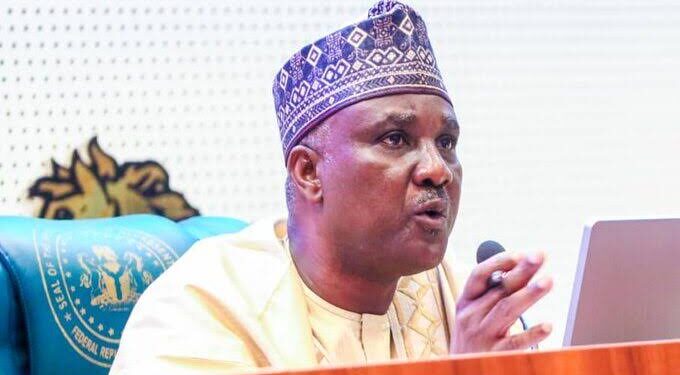In a significant move, members of the House of Representatives have asserted their demand for equal recognition with the Senate, emphasizing their constitutional standing within Nigeria’s legislative framework. This announcement came during a plenary session on Wednesday, where a motion was backed by the Deputy Spokesperson, Rep. Philip Agbese (APC-Benue), alongside 235 fellow lawmakers.
The call for parity was prompted by President Bola Tinubu’s recent broadcast on Independence Day, wherein he bestowed the Grand Commander of the Order of the Niger (GCON) honor upon the Senate President, leaving the Speaker of the House of Representatives and the Deputy Senate President with the Commander of the Federal Republic (CFR) designation.
Rep. Agbese highlighted the bicameral nature of Nigeria’s National Assembly as outlined in Section 4 of the 1999 Constitution, which mandates equal standing for both the House and Senate. He underscored the importance of recognizing the distinct yet complementary roles each chamber plays in the legislative process, as further clarified in Section 47 of the Constitution.
The Deputy Spokesperson expressed concern over a persistent culture of discrimination that undermines the House of Representatives, which is often depicted as subordinate to the Senate. He pointed out the consistent use of hierarchical language, referring to the Senate as the “upper chamber” and the House as the “lower chamber,” which inaccurately reflects their constitutional equality.
Agbese noted that recent honors conferred by the President only reinforced this perception of inequality, particularly as the Chief Justice of Nigeria, who ranks lower in protocol than the Speaker, received the GCON title. He argued that the current practices perpetuate an unjust hierarchy that should be rectified.
In response, the House reaffirmed its commitment to the constitutional principle of equality and called for an overhaul of terminologies and practices that imply otherwise. Agbese stressed that the Speaker holds a vital role as a co-leader within the legislative government, deserving of equal respect and recognition.
The lawmaker pointed out that the National Honours Act of 1964 does not delineate specific honors for Senate and House leaders, suggesting that the distinctions are based on entrenched customs rather than legal mandates. He emphasized that the GCON title should not be reserved for only certain roles and can be awarded to any deserving Nigerian, as demonstrated by previous honors.
To ensure equitable representation, the House has resolved to recognize the Speaker as a co-chairman of the National Assembly and has called on all government entities, officials, and the media to align their language with this principle. Furthermore, they directed the Clerk of the National Assembly to ensure that all official communications reflect this dual leadership structure.
An Ad hoc Committee will also be established to engage with the Presidency to propose necessary amendments to the National Honours Act, aiming to appropriately acknowledge the Speaker’s status as co-head of the National Assembly. The House is urging the President to honor the spirit of bicameral equality in future decisions regarding National Assembly leadership.
As the debate unfolds, it remains to be seen how these resolutions will influence future legislative interactions and the recognition of both chambers within Nigeria’s governance structure.











